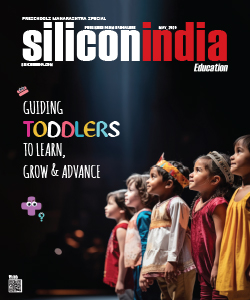Future Prospects for the Technology Ecosystem Going Forward into 2024

A passionate technology professional, Yiftach holds a master’s degree in Computer Science from Tel Aviv University. He incepted Redis in 2011, prior to which he successfully handled key leadership and managerial positions across various organizations such as Israel’s Ministry of Defense, ECI and Native Networks. Additionally, he has founded two more companies – Crescendo Networks and ViConsole. In a recent exclusive interview with Siliconindia, Yiftach Shoolman, Co-Founder & CTO, Redis provided a concise yet insightful overview of the current Indian technology landscape. He delved into the developments of this year and discussed the future prospects as we approach the New Year. Below are the excerpts from the exclusive interview
What has been the impact of the year 2023 on the technology landscape, particularly in the context of India?
There has been widespread acceptance and interest in Gen AI. Over the past year, businesses have increasingly prioritized the careful selection of technologies for implementation, with a keen focus on factors such as cost-effectiveness, scalability, and the capability to swiftly achieve business objectives. This trend is evident across diverse industries, including financial services, media & entertainment, gaming and others. At Redis, we place paramount importance on guaranteeing that our technologies not only meet but exceed expectations by delivering optimal performance in a highly efficient manner. As businesses navigate the evolving landscape of technological integration, our commitment lies in providing solutions that align seamlessly with their goals, ensuring a swift and impactful realization of business objectives.
What were the key concerns for tech businesses as they entered 2023, and how have those situations evolved since then?
In 2023, industries faced unique challenges, particularly in catering to the demands of a customer base largely composed of Gen-Z millennials who prioritize real-time experiences with applications. The foremost challenge for businesses was to guarantee that their products and solutions delivered optimal performance. To address this, companies invested significantly in robust research & development, as well as essential architecture, to ensure a seamless and efficient experience for their end customers in terms of both quality and functionality.
Another critical challenge in this landscape was the management of substantial capital investments necessary to uphold service quality while concurrently maintaining competitive costs in the market. Businesses grappled with striking a delicate balance between delivering high-quality services and ensuring their offerings remained cost-effective – a task that demanded strategic financial planning and resource allocation.
What were two of the most notable technological advancements for the tech community in the year 2023?
In 2023, Gen AI stands-out as a pivotal technological advancement, revolutionizing the way organizations develop applications. Its capabilities have opened-up unprecedented possibilities, allowing for the automation of tasks once deemed unimaginable. This breakthrough technology is now at the forefront of various use cases, including but not limited to online information retrieval, knowledge gathering, and the deployment of chatbots for customer support and query management.
Real-time data emerges as the second major technological advancement in 2023, playing a crucial role in facilitating the capabilities of Gen AI. The availability of real-time data has been instrumental in driving the effectiveness of automation and enhancing the performance of applications. Looking ahead, I firmly believe that these advancements will continue to underpin a myriad of use cases, shaping the technological landscape for years to come.
Illuminate some emerging tech trends that will influence the way businesses operate in 2024.
In 2024, a key trend set for widespread adoption is the emphasis on real-time data access to support Gen AI applications. With growing consumer expectations for system speeds, ensuring seamless access to real-time data becomes paramount. The anticipation is that consumers will demand instant access to information, making real-time data integration a crucial aspect of application development.
Another noteworthy trend involves facilitating a smooth transition from non-real-time data to real-time databases. Many businesses grapple with the challenge of accommodating evolving end-user needs, prompting a growing imperative to migrate data onto real-time databases. This shift ensures a hassle-free experience for customers interacting with products or solutions, reflecting a commitment to agility and responsiveness.
Tech companies, amid a significant increase in usage, will face persistent pressure from customers to reduce service costs. This pressure will drive a necessity for research and innovation, compelling companies to discover novel approaches to maintain quality standards while simultaneously reducing operational costs. Moreover, the migration to cloud is expected to continue its upward trajectory, with cloud-based databases projected to reach approximately 70-75 percent. Additionally, mainstream adoption of edge computing signifies a shift towards decentralized processing, enhancing the efficiency of data management.
Read More News :
Global Shift Towards a Digital-First Future to Further Intensify in 2024
Choosing the Right AI Model is Key to Unlock the Technology's Fullest Potential



.jpg)

.jpg)